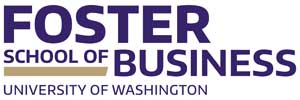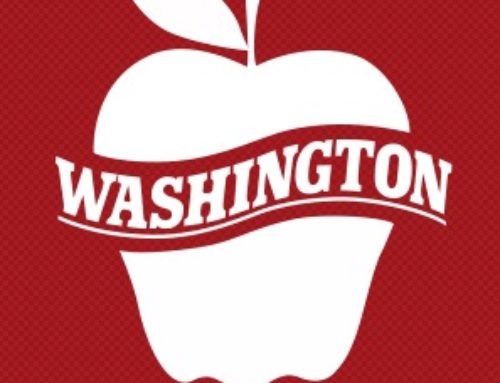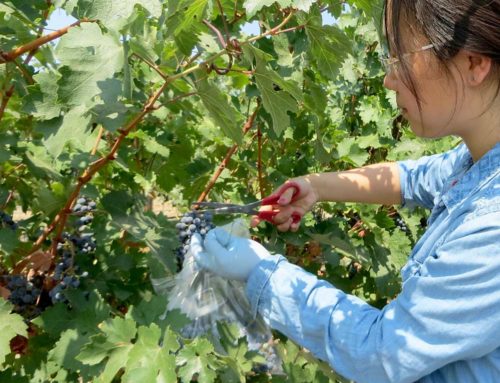Later this month, a group of students will head through the cold and darkness to gather in an office building in Yakima, Washington.
 Most likely, they will be tired after a day of working jobs in agriculture, government, nonprofit service or other places.
Most likely, they will be tired after a day of working jobs in agriculture, government, nonprofit service or other places.
Most will be parents, giving up their evenings to do something to better themselves. Each will be enrolled in a little-known but wonderful program run by the University of Washington Foster School of Business, funded almost entirely by the fruit growing Kershaw family.
And here’s the astounding part: Tuition is free.
This magazine focuses on providing educational information to growers in Washington state and beyond. But we would be remiss if we didn’t give at least some attention to programs funded by growers who make a difference in their communities.
Many growers and grower organizations donate generously to a host of civic, cultural and charitable groups.
One of my favorites is the Washington Apple Education Foundation (WAEF), a terrific organization that provides scholarships to children of the industry entering college or technical schools. Last year, the foundation provided $1 million in assistance to students.
WAEF is impressive not just for its generosity but for its continuing commitment to young people; the foundation stays engaged with its scholars year after year to make sure they complete their programs.
I can only imagine the challenges faced by those students, but I can testify to the power of education. My own parents were children of immigrants driven to America by poverty and by hope.
My parents and their siblings made it to college and broke centuries of poverty, a breakthrough made possible by individual hard work and by government assistance.
The program run in Yakima by the UW Foster School is called the Business Certificate Program, a six-week program that to date has served 260 people from more than 100 companies, including 33 agricultural employers.
I serve on the program’s advisory board in support of its goal of preparing the next generation of managers and business leaders who will help ensure economic prosperity in the Yakima Valley.
The program serves individuals who want to become more effective in their jobs, develop leadership and thinking skills, and improve problem-solving abilities.
The program has drawn employees from grower organizations such as Domex Superfresh Growers, Cowiche Growers, Stemilt Growers, Sundquist Fruit, Zirkle Fruit Co., Allan Brothers, JJ Orchards, Proprietary Variety Management, Roche Fruit and Smith Bolin Orchards.
Other students have come from the City of Yakima, Fred Meyer, McDonald’s of Yakima, Wells Fargo Insurance, Yakima Union Gospel Mission and La Casa Hogar.
Taught by leading faculty from the Foster School, coursework covers six topics: Leading a Highly Effective Organization; Strategic Decision Making; Marketing and Branding; Marketing Plan Development; Financial Management and Understanding Your Company’s Financial Health.
Three sections have been offered.
The January section is fully enrolled. Registration for the March and April sections opens in February and March, respectively.
A new fourth section begins in April. Priority registration is open to employees of companies that financially support the Yakima program, followed by a registration period open to all valley residents.
Registration information can be found online at http://bit.ly/2gq3ZCI.
The UW’s program in Yakima traces its origin to an effort by the business school to provide consultancy services to minority-owned small businesses and underserved communities.
That led to the creation of the UW Business and Economic Development Program with an MBA graduate, Michael Verchot, as director.
In time, services expanded with support from Wells Fargo, Safeco, Seattle Rotary and others. The program was renamed the Consulting and Business Development Center, and faculty expanded across the Cascades to serve Yakima and Washington’s Tri-Cities.
By 2015, the center was utilizing 350 students and a dozen faculty to assist 100 small businesses and nonprofit organizations.
The program in Yakima clearly meets a need. Surveys of students show overwhelming agreement that the coursework benefited them in their current jobs and was valuable for future use.
Fundraising is underway to establish a $1 million endowment to put the program on a permanent footing. This is an excellent thing for the Yakima Valley.
You can’t go wrong investing in people and education. The grower community should support it. Michael Verchot can be reached at mverchot@uw.edu. •
– by O. Casey Corr, managing editor of Good Fruit Grower.






Leave A Comment